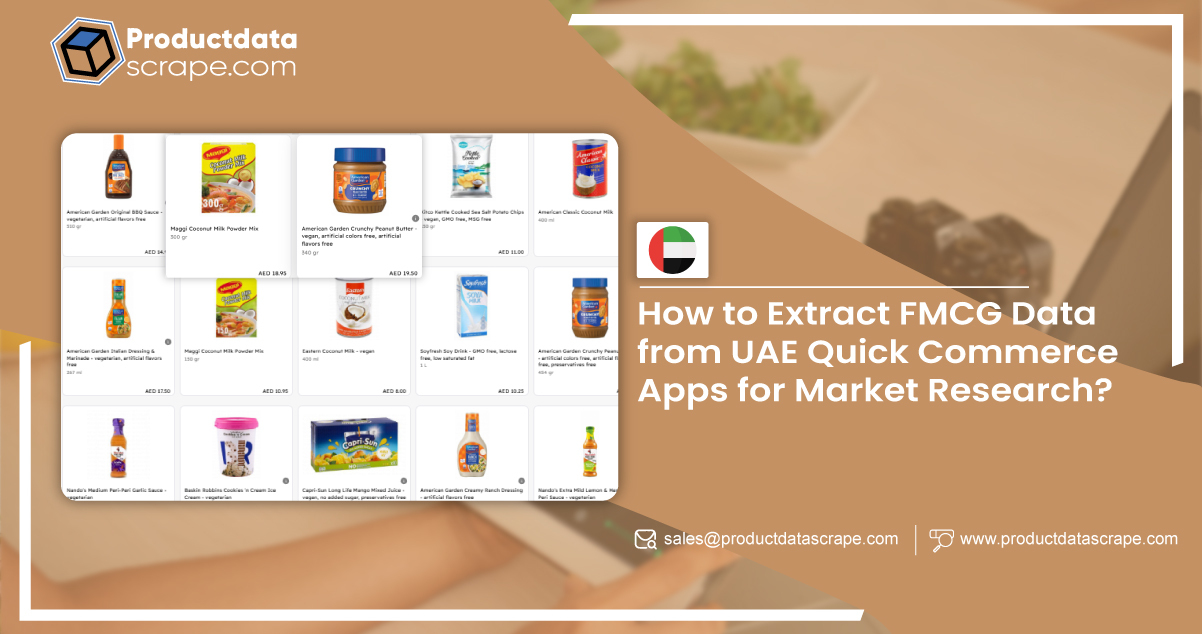
Introduction
The rapid growth of quick commerce (q-commerce) in the UAE has transformed the landscape
of the consumer goods industry, particularly in the Fast-Moving Consumer Goods (FMCG)
sector. As consumer expectations shift towards faster, more convenient shopping experiences,
businesses are seeking ways to adapt and meet the demands of tech-savvy consumers. One of
the most effective ways to Extract FMCG Product Data from UAE Quick Commerce Apps. This
data is critical for businesses seeking to enhance their market intelligence, optimize inventory
management, track competitor activity, and improve their overall strategic decisions.
The rise of quick commerce has significantly altered how consumers access FMCG products.
Some key players in this space include platforms such as Instashop, Carrefour UAE, Zad, and
Talabat Mart. These apps have become essential for consumers who prioritize speed and
convenience, allowing businesses to capitalize on the growing demand for online grocery and
FMCG product deliveries.
This article will explore the significance of Extracting FMCG Product Data from UAE Quick
Commerce Apps, the benefits for businesses, and how this data can drive better decision-
making and improve competitive advantage. Leveraging Quick Commerce App Data Scraping in
the UAE can help companies stay ahead of the curve by offering valuable insights into product
availability, pricing trends, and consumer preferences. Web Scraping Quick Commerce Data
from these platforms enables businesses to gather real-time data, giving them an edge in
making informed, data-driven decisions.
Understanding FMCG and Quick Commerce
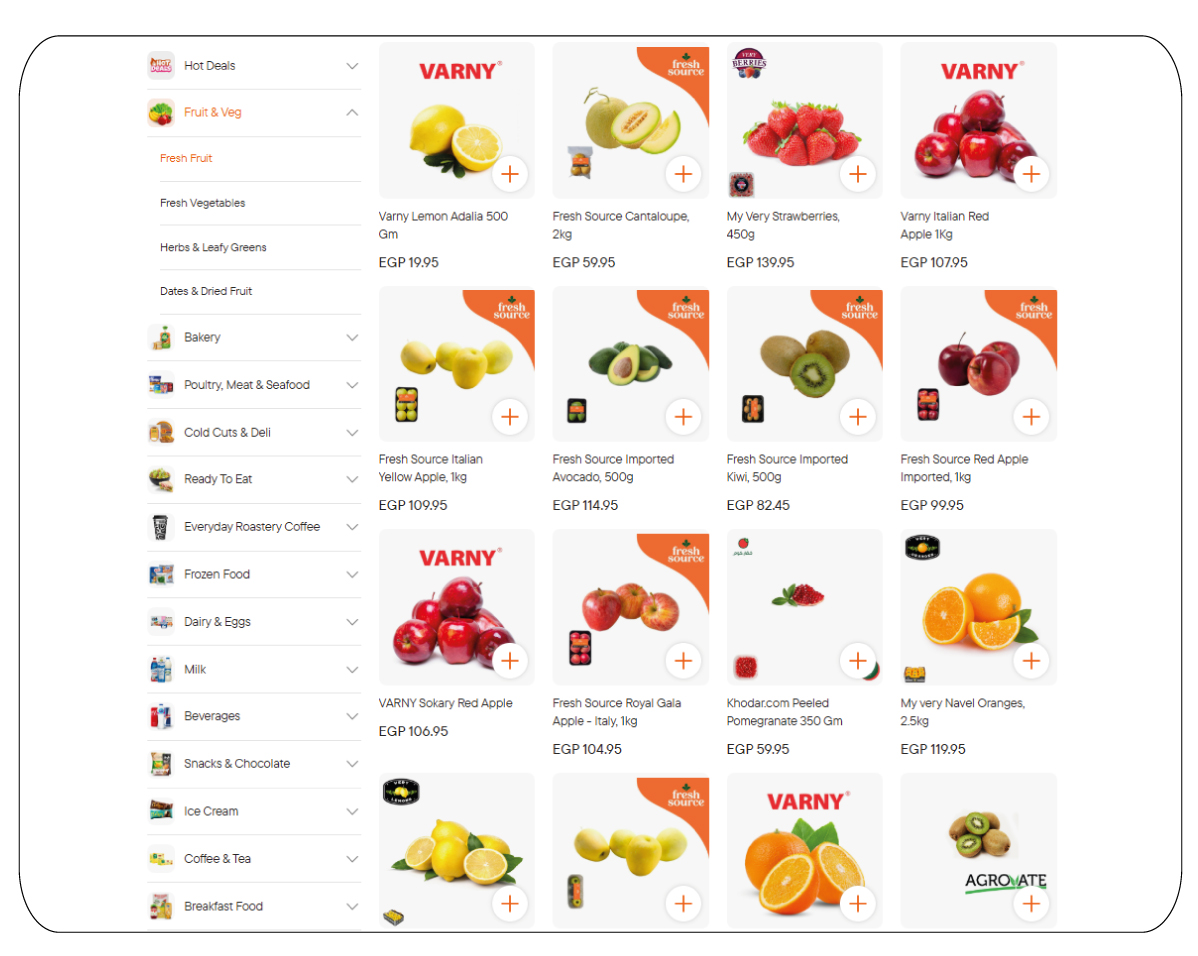
FMCG refers to products that are sold quickly at relatively low prices. These typically include
everyday items like food and beverages, household cleaning products, toiletries, and personal
care goods. These goods have a short shelf life, either due to high turnover or because they are
perishable. With the UAE's booming population and an increasing preference for online
shopping, the FMCG market has become increasingly digitized, with consumers seeking
convenience in their shopping habits.
Quick commerce, or q-commerce, is an evolution of e-commerce designed to provide rapid
delivery services of essential products. Unlike traditional e-commerce, which may take several
days for delivery, quick commerce aims to deliver products to customers within an hour or less.
The fast-paced nature of q-commerce makes it an ideal avenue for FMCG product sales,
particularly in urban markets like Dubai and Abu Dhabi, where consumers expect instant access
to products and services.
Businesses can Scrape FMCG Data from UAE Grocery Delivery Apps to capitalize on this
growing trend. By gathering real-time data from these platforms, companies can gain valuable
insights into product availability, pricing trends, and consumer preferences. Extract Grocery
and FMCG Data from UAE Apps to help businesses improve inventory management, track
competitor activity, and optimize pricing strategies, ultimately enhancing their competitive
advantage in the rapidly evolving q-commerce market.
The Role of Data Extraction in the FMCG Industry
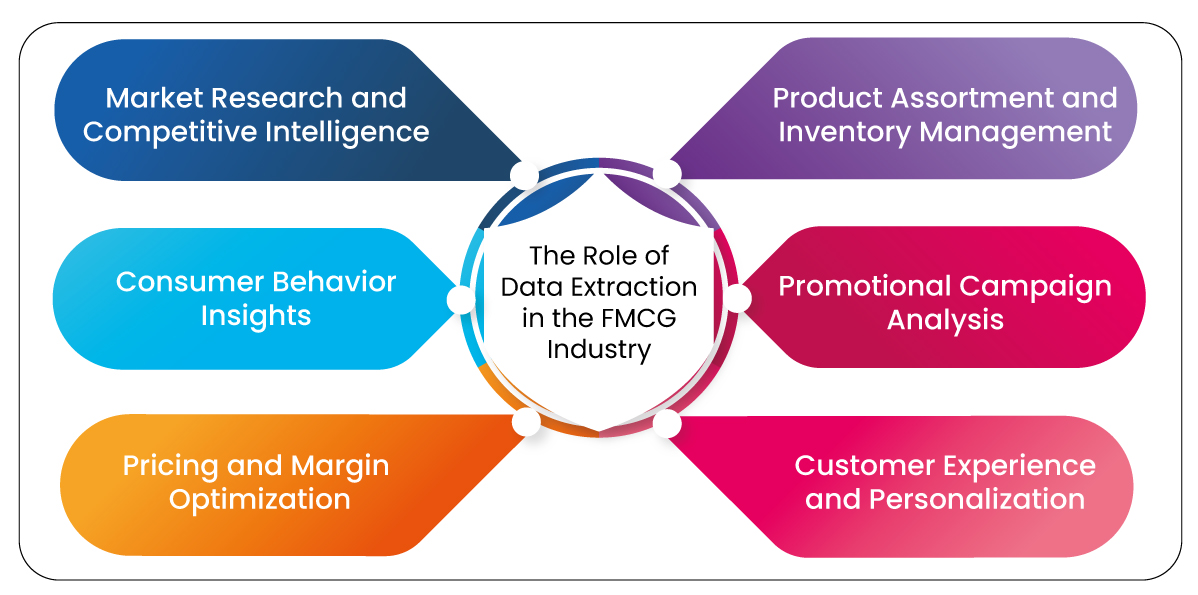
In today's data-driven world, extracting relevant product data from online platforms is crucial
for staying competitive. Data extraction allows businesses to track real-time trends, monitor
consumer preferences, and adjust their offerings accordingly. This data can provide valuable
insights into FMCG brands' market behavior and demand patterns within the UAE's quick
commerce ecosystem. This can help companies in several key areas:
Market Research and Competitive Intelligence: Extracting product data from quick commerce apps provides valuable insights into the prices, product assortments, promotions, and branding strategies used by competitors. Businesses can better understand how competitors price and position their products. For instance, if one platform offers discounts on certain FMCG items, extracting that data helps companies identify pricing trends and adjust their pricing strategies accordingly. Understanding competitor strategies and market movements can also provide an edge when planning marketing campaigns, product launches, and seasonal promotions. Web Scraping Grocery Delivery Data enables businesses to collect real-time data and assess competitor tactics effectively.
Product Assortment and Inventory Management: By extracting data from quick commerce platforms, businesses can monitor the range of products retailers offer and identify which FMCG items are in high demand. Analyzing this data helps businesses forecast trends, optimize their product range, and stock the most popular and high-margin products. Additionally, this information can aid in inventory management, ensuring that brands are not overstocking products with low demand while preventing stockouts of high-demand items. Using Grocery Pricing Data Intelligence helps better stock management and understanding of market movements.
Consumer Behavior Insights: FMCG product data extraction also provides insights into consumer preferences. Businesses can better tailor their marketing strategies by examining which products are frequently purchased, what times of day consumers tend to purchase, and the types of products they tend to buy together. For example, if there is an increasing trend for plant-based food products, brands can adapt their product offerings to align with this growing demand. Extract Grocery & Gourmet Food Data to more accurately understand purchasing trends and customer preferences.
Promotional Campaign Analysis: Promotional campaigns are a key component of the FMCG industry. Many retailers frequently run sales events, limited-time offers, and discounts to attract customers. By extracting promotional data from quick commerce apps, businesses can track the effectiveness of these campaigns. Businesses can learn which promotions attract the most attention, the type of customers who respond best to specific discounts, and how effectively these promotions drive conversions. This helps companies optimize future campaigns and allocate resources more effectively. Web Scraping Grocery & Gourmet Food Data provides essential insights for refining promotional strategies.
Pricing and Margin Optimization: Pricing is one of the most critical factors in the FMCG industry, and quick commerce platforms play a central role in the pricing dynamics of the market. Extracting product data, including pricing and discounts, helps businesses track competitor pricing in real time. With this data, companies can adjust their pricing strategies to stay competitive. Additionally, analyzing product pricing across various platforms provides insights into margin optimization by helping businesses identify high-margin products and pricing opportunities. eCommerce Dataset Scraping can significantly improve pricing strategies by offering access to real-time data.
Customer Experience and Personalization: Data extracted from FMCG products in quick commerce apps also offers valuable insights into consumer behavior and preferences, which can help businesses enhance customer experiences. Businesses can tailor their offerings and create personalized marketing strategies by tracking customer reviews, ratings, and product preferences. For example, suppose certain customer segments consistently purchase specific types of FMCG products. In that case, businesses can use this data to target those segments with personalized offers and recommendations, increasing conversion rates and customer loyalty. Web Scraping Quick Commerce Data allows businesses to personalize their marketing and product offerings based on consumer behavior.
Ethical and Legal Considerations in Data Extraction
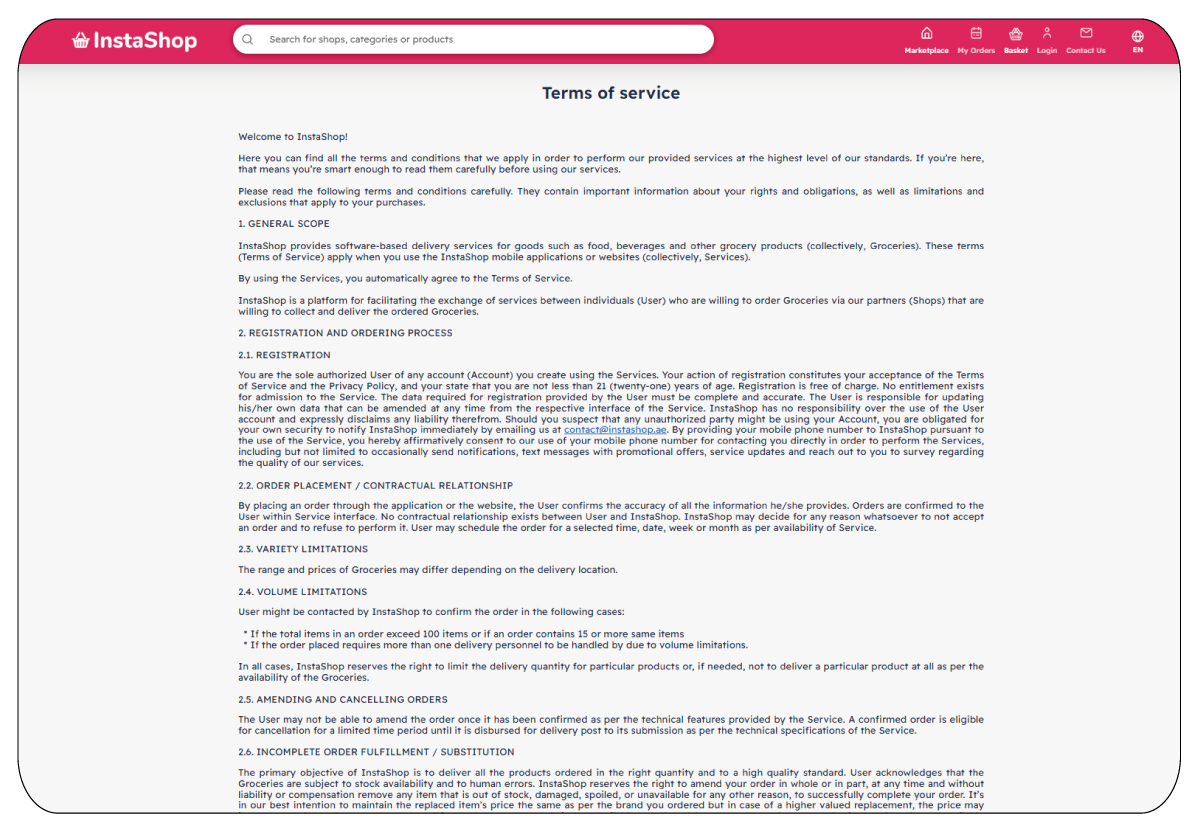
While extracting FMCG product data from quick commerce apps offers numerous business advantages, it is essential to follow ethical and legal guidelines when accessing and using this data. In the UAE, consumer data and privacy protection is governed by strict laws, such as the UAE Data Protection Law. Businesses must ensure that they comply with these regulations and avoid using unauthorized data extraction methods. Transparency and respect for user consent are vital when dealing with consumer data.
Another aspect to consider is ensuring that data extraction methods do not violate the platforms' terms of service being scraped. Many websites and apps have specific clauses in their terms and conditions that restrict the use of automated tools for data scraping. Therefore, businesses should consider working with legitimate data service providers that comply with relevant laws and guidelines to avoid potential legal risks.
Key Quick Commerce Apps for FMCG Data Extraction in the UAE
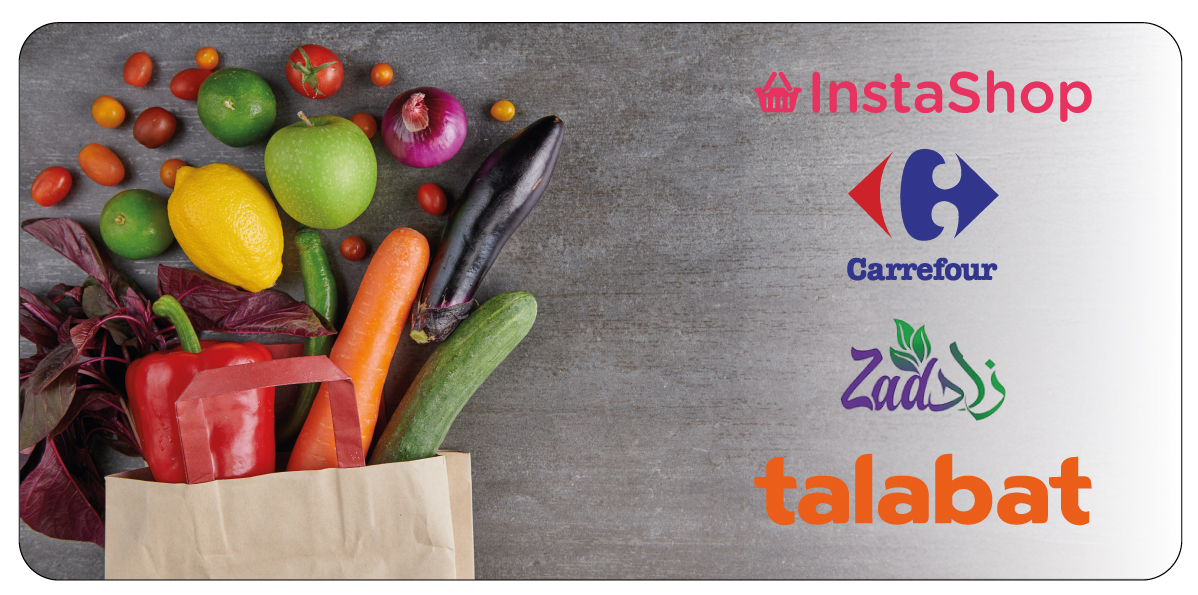
To gain a competitive advantage, businesses must focus on extracting product data from the right sources. Here are some of the leading quick commerce apps in the UAE where FMCG data extraction can be most beneficial:
Instashop: Instashop is one of the most popular quick commerce platforms in the UAE. It offers a wide range of FMCG products, from groceries to health and beauty products. It provides a fast delivery service and is widely used by consumers across Dubai, Abu Dhabi, and other UAE cities. Extracting product data from Instashop can help businesses track product availability, pricing, and promotional offers.
Carrefour UAE: Carrefour, operated by Majid Al Futtaim, is another key player in the UAE's quick commerce sector. It offers various FMCG products, including food, beverages, personal care items, and household products. By extracting data from Carrefour's online platform, businesses can monitor inventory, assess product assortment, and analyze customer trends.
Zad: Zad is a new addition to the UAE's quick commerce ecosystem, providing fast delivery of grocery items and FMCG products. By extracting data from Zad, businesses can understand which categories of FMCG products are gaining traction and make informed decisions on inventory stocking and marketing strategies.
Talabat Mart: A subsidiary of Talabat, Talabat Mart has gained significant traction in the UAE due to its fast delivery services. By collecting data from Talabat Mart, businesses can access real-time product information, track pricing trends, and identify which FMCG items are most popular with consumers.
Conclusion
Extracting FMCG product data from UAE quick commerce apps is crucial for businesses seeking to stay competitive. With the rise of online shopping and faster delivery services, data extraction helps businesses understand consumer behavior, pricing trends, and competitor activity, leading to informed decisions. By leveraging this data, companies can optimize product assortments, improve customer experiences, and strengthen market positioning. However, compliance with legal and ethical standards for responsible data usage is essential. Web Scraping FMCG Data in UAE Quick Commerce Apps provides timely insights, while Grocery & Supermarket Data Scraping Services helps businesses capitalize on the growing demand for quick commerce.
At Product Data Scrape, we strongly emphasize ethical practices across all our services, including Competitor Price Monitoring and Mobile App Data Scraping. Our commitment to transparency and integrity is at the heart of everything we do. With a global presence and a focus on personalized solutions, we aim to exceed client expectations and drive success in data analytics. Our dedication to ethical principles ensures that our operations are both responsible and effective.





































.webp)






